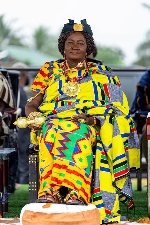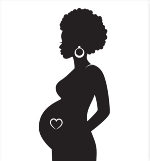The 5 love languages don’t matter as much as you think
 Couple
Couple
There are some questions that always come up on a first date: "Where are you from?" "What do you do for work?" "What do you do in your free time?" But more than once, I've been surprised to get the following inquiry from a potential romantic partner:
"Which love language are you?"
For those unfamiliar, the five love languages were created by pastor Gary Chapman, who published his book, The Five Love Languages, in 1992. In the book, he outlines the five ways he believes humans show—and want to be shown—love. These so-called "love languages" are: receiving gifts; quality time; words of affirmation; acts of service (devotion); and physical touch. The idea in Chapman's book is simple: If you understand your partner's love language, and they understand yours, you can theoretically achieve a healthier and more harmonious relationship.
Let's say there's a couple where one person's preferred love language is words of affirmation, but the other person grew up in a family that didn't compliment each other often; instead, they learned to show and receive love through acts of devotion—like doing small favours for each other. In this scenario, according to The Five Love Languages, it would be helpful for that second person to realize, "Oh, my partner wants to hear how much I love and appreciate them! I thought it was assumed through my actions, but let me go ahead and let them know verbally."
As the New York Times reports, the book sold 8,500 copies in its first year, 17,000 copies the year after, and a whopping 137,000 copies two years after it first came to print. Since August 2009, The Five Love Languages has consistently been on the New York Times best-seller list.
But are the five love languages legit?Does having compatible love languages actually matter? And are they something you should consider when looking for a partner? We spoke with three relationship experts to get to the root of whether love languages are mere pop science, or if there’s a solid base to how Chapman theorized the ways we express and receive love.
Stephen Snyder, MD, a sex and relationship therapist and host of the Relationship Doctor podcast, is skeptical about the theory's legitimacy. “Gary Chapman's original Five Love Languages idea was based on his own informal review of his office notes from many years of counselling couples," Snyder says. "There's been some confirmatory research since then, but not a lot."
Nevertheless, he gives the love languages some credit, noting, “A counselling technique doesn't typically go viral like that unless there's something to it.”
In fact, it’s a tool that Vienna Pharaon, a licensed marriage and family therapist, uses with her clients. “I’ve had so many couples have ‘aha’ moments around this research," Pharaon says. "It’s common to hear one partner say, ‘I don’t feel loved by my partner,’ and the other responded by saying, ‘I just don’t get it. I do everything possible to make sure you feel loved.’”
She continues, “Sometimes the answer is as simple as: You’re speaking different love languages and missing the mark with each other.”
But psychotherapist Kathryn Smerling, PhD, suggests the love languages are just a convenient way to package basic principles of communication in a relationship.
“It outlines ways to experience and express love, so there's a lot of different ways to do it," Smerling says. "This is one way, and if this works for people then I say, bravo.”
It seems like the greatest strength of the five love languages is that they give people the vocabulary to talk about what they need out of a romantic partner.
What if my partner and I have different love languages?Don't panic! It doesn't mean you're not compatible—only that you might want to tweak your communication styles.
“Our work as partners is to acknowledge and expand,” says Pharaon. “If you know your partner feels most loved through one or two of the languages, then you should attempt to meet them there." (And if you're currently single, you don't need to worry about finding someone with your exact love language. Instead, “seek out a partner who is aware and open," Pharaon says. "You don’t need to match. You just need to be willing to try and put in the effort.")
Most couples don't have perfectly-matching love languages, Synder says—and that's potentially a good thing. “Having different love languages might be a good reminder that the two of you weren't put on earth to meet each other's needs exactly," he says. "What is important is to recognize how different your partner might be from you—and that this is okay!”
With this in mind, I finally know how I'll respond on my next date if they go ahead and ask me my love language.
"Acts of service," I'll reply because I now know after retaking the quiz. But I'll be sure to add: "If we keep dating, I promise to be accommodating of whatever your preferred love language is."
Source: Menshealth
Trending Entertainment

Ohemaa Mercy full of praise for Church of Pentecost's transformative culture of discipline
17:03
How Ohemaa Mercy takes care of her voice despite ‘vocal casualties’
16:03
Abronye DC’s wife denies divorce rumours
10:04
Preparations start for final funeral rites of late Asantehemaa Nana Konadu Yiadom III
09:26
Vice President enstooled as Owoabrempong Kru-Kow I of Komenda
03:00
Nigeria: Uproar as 18-year-old boy impregnates 10 girls in Anambra
04:19
North Korea executing more people for watching foreign films and TV, UN finds
22:19
Nigerian pilot tests positive for alcohol after plane veered off runway
22:12
Gov't reaffirms commitment to making Ghana the cultural hub of Africa
02:47
Ireland threatens to withdraw from Eurovision if Israel participates
16:57




